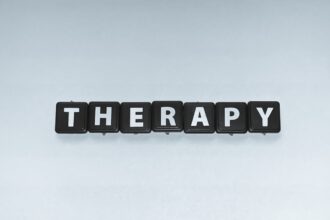Depersonalization and derealization are psychological phenomena that can leave you feeling detached from your own thoughts, feelings, or sense of self. When you experience depersonalization, it may feel as though you are an observer of your own life, as if you are watching yourself from a distance. This can lead to a profound sense of disconnection from your body and identity, making everyday experiences feel surreal or dreamlike.
On the other hand, derealization involves a sense of detachment from your surroundings. You might perceive the world around you as strange or unreal, as if you are living in a movie or a dream. Both experiences can be disorienting and distressing, often leading to confusion and anxiety.
These phenomena can occur independently or together, and they are often triggered by stress, anxiety, or trauma. While many people may experience fleeting moments of depersonalization or derealization during particularly stressful times, for some, these feelings can become chronic and debilitating. Understanding these experiences is crucial for those who find themselves grappling with them, as it can help demystify the sensations and provide a pathway toward healing.
Key Takeaways
- Depersonalization and derealisation are dissociative disorders that involve feeling detached from oneself and the surrounding environment.
- Symptoms of depersonalization and derealisation include feeling like an outside observer of one’s thoughts and actions, and experiencing the world as unreal or distorted.
- Causes of depersonalization and derealisation can include trauma, anxiety, stress, and certain mental health conditions.
- Diagnosis of depersonalization and derealisation involves a thorough evaluation of symptoms and ruling out other potential causes.
- Treatment options for depersonalization and derealisation may include therapy, medication, and lifestyle changes to manage symptoms and improve quality of life.
Symptoms of Depersonalization and Derealisation
The symptoms of depersonalization and derealization can vary widely from person to person, but they often share common threads. You might find yourself feeling emotionally numb or disconnected from your thoughts and feelings. This emotional detachment can make it challenging to engage with others or even to enjoy activities that once brought you joy.
You may also experience a distorted sense of time, where moments feel elongated or compressed, leaving you feeling lost in the flow of life. In addition to these emotional symptoms, physical sensations may accompany depersonalization and derealization. You might feel as though your body is not your own, experiencing a sense of heaviness or lightness that is difficult to explain.
Some individuals report visual distortions, such as objects appearing larger or smaller than they actually are. These symptoms can be alarming and may lead to increased anxiety, as you struggle to reconcile your internal experiences with the external world.
Causes of Depersonalization and Derealisation

The causes of depersonalization and derealization are complex and multifaceted. Often, these experiences are linked to significant stressors or traumatic events in your life. For instance, if you have experienced a traumatic incident—such as an accident, abuse, or the loss of a loved one—you may find yourself grappling with feelings of detachment as a coping mechanism.
Your mind may create a buffer against overwhelming emotions by disconnecting you from reality, leading to episodes of depersonalization or derealization. Additionally, anxiety disorders can play a significant role in triggering these experiences. If you struggle with chronic anxiety or panic attacks, you may be more susceptible to feelings of unreality.
The heightened state of arousal associated with anxiety can lead your brain to enter a protective mode, resulting in depersonalization or derealization as a way to shield you from perceived threats. Understanding these underlying causes is essential for addressing the symptoms effectively.
Diagnosis of Depersonalization and Derealisation
| Diagnosis Criteria | Percentage |
|---|---|
| DSM-5 Criteria Met | 70% |
| ICD-10 Criteria Met | 60% |
| Self-Reported Symptoms | 80% |
| Clinical Interview | 90% |
Diagnosing depersonalization and derealization typically involves a comprehensive evaluation by a mental health professional. During this process, you will likely discuss your symptoms in detail, including their frequency, duration, and impact on your daily life. The clinician may also inquire about any past trauma or significant stressors that could be contributing to your experiences.
It’s important to be open and honest during this assessment, as it will help the professional understand your unique situation. In some cases, the clinician may use standardized questionnaires or diagnostic criteria outlined in the Diagnostic and Statistical Manual of Mental Disorders (DSM-5) to determine whether you meet the criteria for depersonalization-derealization disorder. This diagnosis is made when the symptoms are persistent and cause significant distress or impairment in functioning.
By obtaining an accurate diagnosis, you can begin to explore appropriate treatment options tailored to your specific needs.
Treatment Options for Depersonalization and Derealisation
When it comes to treating depersonalization and derealization, there is no one-size-fits-all approach. Treatment options often depend on the severity of your symptoms and any underlying conditions that may be contributing to your experiences. One common avenue is psychotherapy, particularly cognitive-behavioral therapy (CBT).
This therapeutic approach focuses on identifying negative thought patterns and behaviors that may be exacerbating your feelings of detachment. Through CBT, you can learn coping strategies to manage anxiety and re-engage with your thoughts and emotions. In some cases, medication may also be considered as part of your treatment plan.
Antidepressants or anti-anxiety medications can help alleviate symptoms associated with underlying conditions like anxiety disorders or depression. However, medication is typically used in conjunction with therapy rather than as a standalone solution. It’s essential to work closely with your healthcare provider to determine the most effective treatment strategy for your unique situation.
Coping Strategies for Depersonalization and Derealisation

In addition to professional treatment options, there are several coping strategies you can employ to manage episodes of depersonalization and derealization in your daily life. Mindfulness practices can be particularly beneficial in grounding yourself during moments of detachment. Engaging in mindfulness meditation or deep-breathing exercises can help anchor you in the present moment, allowing you to reconnect with your thoughts and feelings.
Another effective strategy is to establish a routine that incorporates self-care activities. Regular exercise, healthy eating, and sufficient sleep can all contribute to improved mental well-being.
By actively engaging in self-care and mindfulness practices, you can cultivate resilience against the challenges posed by depersonalization and derealization.
Impact on Daily Life and Relationships
The impact of depersonalization and derealization on daily life can be profound. You may find it challenging to engage fully in work or social situations due to feelings of disconnection from yourself and others. This detachment can lead to misunderstandings in relationships, as friends and family may struggle to comprehend what you are experiencing.
You might feel isolated or misunderstood, which can exacerbate feelings of loneliness and anxiety. Moreover, the unpredictability of these episodes can create additional stress in your life. You may worry about when the next episode will occur or how it will affect your ability to function in various settings.
This constant state of apprehension can lead to avoidance behaviors, where you shy away from situations that could trigger feelings of unreality. Recognizing the impact on your daily life is an important step toward seeking support and finding ways to navigate these challenges.
Understanding the Connection to Anxiety and Trauma
Understanding the connection between depersonalization-derealization experiences and anxiety or trauma is crucial for effective management. Many individuals who experience these phenomena have a history of anxiety disorders or traumatic events that have shaped their emotional responses. The brain’s response to trauma often involves dissociation—a protective mechanism that allows individuals to distance themselves from overwhelming emotions or memories.
When faced with anxiety-provoking situations, your brain may revert to this dissociative state as a means of coping. This connection highlights the importance of addressing underlying anxiety or trauma through therapeutic interventions. By working through past experiences and developing healthier coping mechanisms, you can reduce the frequency and intensity of depersonalization and derealization episodes.
The Role of Therapy in Managing Depersonalization and Derealisation
Therapy plays a pivotal role in managing depersonalization and derealization effectively. A skilled therapist can help you explore the root causes of your experiences while providing tools for coping with distressing symptoms. Through talk therapy, you can gain insight into how past traumas or anxiety contribute to your current state of mind.
Additionally, therapy offers a safe space for you to express your feelings without judgment. This validation can be incredibly healing as you navigate the complexities of depersonalization and derealization. Techniques such as grounding exercises or exposure therapy may also be incorporated into your treatment plan to help you confront fears associated with these experiences gradually.
How to Support Someone with Depersonalization and Derealisation
If someone close to you is experiencing depersonalization or derealization, offering support can make a significant difference in their journey toward healing. Start by listening without judgment; allow them to share their experiences openly without fear of dismissal or misunderstanding. Validate their feelings by acknowledging that what they are experiencing is real for them, even if it seems difficult for others to comprehend.
Encourage them to seek professional help if they haven’t already done so. Offer assistance in finding resources or accompanying them to appointments if they feel comfortable with that level of support. Additionally, check in regularly to see how they are doing; small gestures of care can go a long way in helping them feel less isolated during challenging times.
Research and Future Directions in Understanding Depersonalization and Derealisation
Research into depersonalization and derealization is ongoing, with scientists striving to uncover the underlying mechanisms that contribute to these phenomena. Recent studies have explored the neurobiological aspects of dissociation, examining how brain activity differs during episodes of depersonalization compared to normal states of consciousness. Understanding these mechanisms could pave the way for more targeted treatments in the future.
Moreover, researchers are investigating the efficacy of various therapeutic approaches for managing depersonalization-derealization disorder. As awareness grows about these experiences, there is hope for increased funding for research initiatives aimed at developing innovative treatment options that address both the psychological and physiological aspects of these conditions. By staying informed about advancements in research, you can empower yourself with knowledge that may aid in your journey toward understanding and managing depersonalization and derealization more effectively.
In understanding the nuances between depersonalization and derealization, it’s essential to delve into the psychological underpinnings that differentiate these two experiences. Depersonalization refers to a feeling of detachment from one’s own body or self, as if observing oneself from an outside perspective. In contrast, derealization involves a sense of unreality or detachment from the external world, making surroundings feel dreamlike or distorted. For a more comprehensive exploration of these concepts, you can refer to an insightful article on the topic available at Unplugged Psych. This resource provides valuable information that can help in distinguishing between these often-confused psychological phenomena.
Learn More About Depersonalization & Derealization
FAQs
What is depersonalization?
Depersonalization is a mental health condition characterized by feeling detached from one’s thoughts, feelings, and sensations. It can make a person feel like they are observing themselves from outside their body.
What is derealization?
Derealization is a mental health condition characterized by feeling detached from one’s surroundings. It can make a person feel like the world around them is unreal or distorted.
What are the differences between depersonalization and derealization?
Depersonalization involves feeling detached from oneself, while derealization involves feeling detached from the external world. Both can occur together and are often experienced as part of the same condition, known as depersonalization-derealization disorder.
What are the causes of depersonalization and derealization?
The exact causes of depersonalization and derealization are not fully understood, but they are often associated with anxiety, trauma, stress, and certain mental health disorders such as depression and PTSD.
How are depersonalization and derealization treated?
Treatment for depersonalization and derealization may include therapy, medication, and stress-reduction techniques. Cognitive-behavioral therapy (CBT) has been found to be effective in helping individuals manage these symptoms.
Can depersonalization and derealization be cured?
While there is no specific cure for depersonalization and derealization, many individuals find relief from symptoms through treatment and therapy. With proper management, symptoms can be significantly reduced or eliminated.



